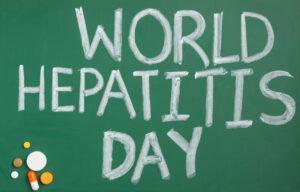Let’s make breastfeeding and work, work!
More than half of the female workforce worldwide lacks proper maternity protections under national laws. It is alarming that only 20% of countries obligate employers to provide paid breaks and facilities for breastfeeding or expressing milk for their employees. Additionally, it is concerning to note that less than half of all infants under 6 months of age are exclusively breastfed, which is crucial for their health and development. These issues become even more significant during World Breastfeeding Week, as it highlights the importance of addressing and improving these circumstances globally.
WHY BREASTFEEDING IS IMPORTANT?
Breastfeeding holds immense significance for both infants and mothers due to its wide range of health benefits and positive impact on development. Let’s explore some key reasons why breastfeeding is widely considered crucial:
For Infants:

- Optimal Nutrition: Breast milk is uniquely formulated to fulfill an infant’s nutritional requirements, offering a perfect blend of essential nutrients, vitamins, and minerals necessary for growth and development during the early stages of life.
- Enhanced Immune System: Breast milk contains valuable antibodies and immune cells that safeguard infants against infections and diseases, thus reducing the risk of ailments such as respiratory infections, ear infections, gastrointestinal issues, and more.
- Improved Digestion: Breast milk is easily digestible, minimizing the chances of gastrointestinal discomfort and allergies when compared to formula-fed infants.
- Cognitive Development: Breast milk is rich in essential fatty acids, including DHA (docosahexaenoic acid), which play a critical role in brain and cognitive development.
- Prevention of Chronic Conditions: Research suggests that breastfeeding may contribute to a decreased risk of certain chronic diseases in later life, including obesity, type 1 and 2 diabetes, and certain types of cancer.
- Bonding Experience: Breastfeeding nurtures a strong emotional bond between mother and baby, fostering feelings of security and comfort for the infant.
For Mothers:

- Quicker Postpartum Recovery: Breastfeeding stimulates the release of oxytocin, which aids in uterine contraction, thereby minimizing postpartum bleeding and assisting in the mother’s recovery after childbirth.
- Gradual Weight Loss: Breastfeeding burns additional calories, facilitating gradual weight loss for mothers after pregnancy.
- Reduced Risk of Diseases: Breastfeeding is associated with a lowered risk of specific health conditions in mothers, such as breast and ovarian cancer, type 2 diabetes, and cardiovascular disease.
- Convenience and Cost-Effectiveness: Breastfeeding is convenient and entails no preparation, sterilization, or expenses related to formula, making it a more accessible option for mothers.
- Emotional Well-being: Breastfeeding can promote feelings of closeness and well-being in mothers, reducing the risk of postpartum depression.
- Natural Contraceptive Effect: Exclusive breastfeeding can serve as a natural form of contraception during the initial months after childbirth, known as the Lactational Amenorrhea Method (LAM).
Considering these remarkable benefits, the World Health Organization (WHO) recommends exclusive breastfeeding for the first six months of a baby’s life, followed by continued breastfeeding alongside the introduction of appropriate complementary foods until at least two years of age. Nevertheless, it is important to acknowledge that individual circumstances may vary, and some mothers may encounter challenges with breastfeeding. In such cases, seeking guidance and support from healthcare professionals can prove beneficial to ensure the well-being of both mother and child.
The main objective of World Breastfeeding Week is to raise awareness and advocate for the significance of breastfeeding for both infants and mothers. This global event is celebrated to emphasize the numerous advantages of breastfeeding, address the challenges faced by breastfeeding mothers, and promote support for breastfeeding practices in different communities and societies.
The objectives of World Breastfeeding Week consist of:
- Educating individuals, families, and communities about the importance of breastfeeding. This event aims to inform people about how breastfeeding is the optimal and natural method to nourish infants and promote their healthy growth and development.
- Providing emotional and practical support to breastfeeding mothers. World Breastfeeding Week emphasizes the significance of supporting mothers in their journey of breastfeeding. By doing so, it encourages them to continue breastfeeding and overcome any challenges they may face.
- Advocating for breastfeeding-friendly environments. The week seeks to promote policies and initiatives that create supportive settings for breastfeeding, such as in workplaces, healthcare facilities, and public spaces. The aim is to ensure that breastfeeding mothers feel comfortable and supported in these environments.
- Involving health professionals and healthcare systems. World Breastfeeding Week aims to engage health professionals and healthcare systems in supporting and promoting breastfeeding. They play a crucial role in providing accurate and up-to-date information to mothers and families.
- Addressing societal misconceptions and challenges. This event serves as a platform to challenge cultural and societal barriers, myths, and misconceptions about breastfeeding. The goal is to create a more nurturing and supportive environment for breastfeeding mothers.
- Fostering collaboration. World Breastfeeding Week encourages collaboration among governments, non-governmental organizations, healthcare providers, and communities. The aim is to work together and recognize breastfeeding as a shared responsibility.
In conclusion, breastfeeding is of utmost importance for both infants and mothers due to its numerous health and developmental benefits. Breast milk provides optimal nutrition for infants, with a perfect balance of nutrients, antibodies, and immune support, promoting healthy growth and reducing the risk of infections and diseases. Breastfeeding also supports brain development, aids in digestion, and has potential long-term benefits, such as reducing the risk of chronic diseases in later life.
For mothers, breastfeeding offers postpartum recovery benefits, including uterine contraction and weight loss. It also reduces the risk of certain health conditions like breast and ovarian cancer, type 2 diabetes, and cardiovascular disease. Breastfeeding fosters emotional bonding between mother and baby, providing a sense of security and well-being.




